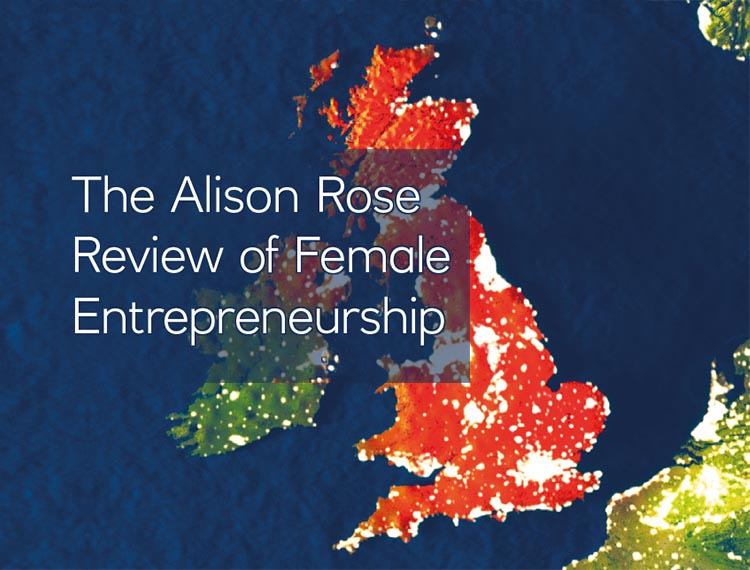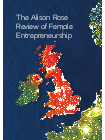The Alison Rose Review of Female Entrepreneurship

The Alison Rose Review of Female Entrepreneurship has concluded, and the government has responded to the to the review’s findings.
The Treasury commissioned Alison Rose to lead an independent review of female entrepreneurship.
The review has shed renewed light on the barriers faced by women starting and growing businesses and identified ways of unlocking this untapped talent.
In response, the government has announced an ambition to increase the number of female entrepreneurs by half by 2030, equivalent to nearly 600,000 additional female entrepreneurs.
The report and government response set out the steps being taken by government and industry to help achieve this ambition:
I firmly believe that the disparity that exists between female and male entrepreneurs is unacceptable and holding the UK back. The unrealised potential for the UK economy is enormous.
This is why I was pleased to accept the invitation from Robert Jenrick MP, Exchequer Secretary to the Treasury, to carry out this review into barriers to female entrepreneurship.
We have a shared ambition to strengthen the UK’s position as one of the best places in the world for women to start and grow a business.
Business has a significant part to play in making the UK the best place to start and scale a business regardless of gender. It is clear that tailored support from specialists who understand the different challenges that female business owners face, as well as the way they think and run their business, makes a real difference to success rates.
Our ambition – through the implementation of the recommendations in this report and joined-up action from the private and public sectors – is to break down the barriers to achieving our aspiration and unlock the potential that exists within the UK economy.
From our detailed research we believe the biggest opportunities to help female entrepreneurs fall in three areas: – Increasing the funding directed towards them; – Greater family care support; and, – Making entrepreneurship more accessible for women and increasing support locally, through relatable and accessible mentors and networks.
Underpinning these challenges we have identified the key barriers that have an impact on female entrepreneurs and eight initiatives, as well as a number of other areas for further development, that will help women pursue their business aspirations, whether to start-up or scale-up.
I know from my day job, running the UK’s biggest bank for business, how important it is to support entrepreneurship and I have seen the difference that tailored support can make. This is why I established our Entrepreneur Accelerator programme, with 12 free accelerator hubs, helping develop and nurture the ecosystem for our very vibrant entrepreneurship community in the UK and I am pleased to say that over 50% of entrepreneurs in the programme are female.
The impact of targeted initiatives is also seen in our Women in Business Programme where we have over 500 accredited Women in Business specialists working across the UK. This has led to an 18% increase in the number of new business banking accounts for women-led businesses and a 10% increase in lending to our female customers in 2018.
It is also clear that across both public and private sectors, we need to do things differently. I welcome the UK Government’s forthcoming Gender Equality and Economic Empowerment Strategy which should prove a helpful vehicle for centrally coordinated action that is regularly updated to reflect the changing needs of the UK economy.
Research carried out by McKinsey & Co has shown that companies with the greatest gender diversity on their executive teams are 21% more likely to outperform peers on profitability and 27% more likely to create superior value.
Our research also shows that women are as successful as men in sustaining a business once established. To make the UK the most attractive place to do business we need the creativity and innovation that comes from diversity of thought in order to keep up with the rapidly changing world around us.
I would also like to take this opportunity to put on record my thanks to McKinsey & Co for their considerable assistance in the development of this report and the research that underpins it. I will be working with partners across the public and private sectors on taking forward these recommendations and will update on progress in due course.
I hope you read this report and feel motivated to make a difference, and to get involved to make the UK a better place for business.
Alison Rose is the Deputy CEO, NatWest Holdings and CEO, Commercial & Private Banking.













Responses